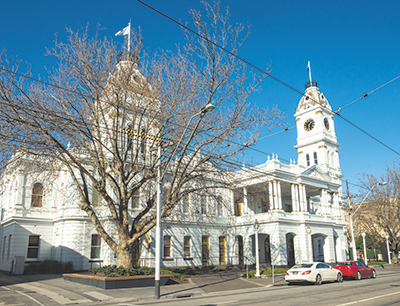The recent resignation of Melbourne’s Lord Mayor raises questions about councillor conduct and the mechanisms by which councillors are held accountable.
The City of Melbourne will head to the polls in May to elect a new Lord Mayor in a by-election triggered by the resignation of Robert Doyle, after allegations were raised by his fellow councillors of sexual harassment and indecent assault.
This investigation follows on the heel of a string of very public inquiries into local government elected officials and staff for misconduct ranging from bullying and harassment to financial mismanagement and corrupt practices.
In 2016 Auburn City Council, including flamboyant Deputy Mayor, Salim Mehajer was suspended while a public inquiry investigated dubious planning and development decisions.
In 2017 Ipswich City Council Mayor, Paul Pisasale, two successive Chief Executive Officers (CEO) Carl Wulff and Jim Lindsay, and Chief Operating Officer (COO) Craig Maudsley, were variously charged by the Queensland Crime and Corruption Commission for extortion, attempting to pervert justice and misconduct in public office.
Most recently, the City of Perth was suspended early this month by Western Australian Local Government Minister, David Templeman, and a panel of commissioners will be appointed in its place ahead of a royal commission-level investigation.
The City’s Lord Mayor, Lisa Scaffidi only returned to office in January after winning an appeal against an 18-month suspension for failing to disclose gifts and overseas travel worth thousands of dollars. (While 26 of the 45 charges against her were dismissed in the Court of Appeal, 19 charges remain.)
Behaving badly in public office is not the exclusive province of local government, as demonstrated recently by the beleaguered former leader of the federal National Party.
As has been seen historically, the process of holding councillors to account for their behaviour is open to politicking. Several states are currently considering more robust codes of conduct.
In South Australia, complaints against councillors that are not able to be resolved in-house are referred to the Ombudsman. The Department, reported that a large number of the incidents coming under their investigation were frivolous – personality clashes rather than breaches of the code of conduct.
Regardless of the severity of the complaint, the consequent investigations cost South Australians councils thousands of dollars per incident.
President of the Local Government Association of South Australia (LGASA), Mayor Lorraine Rosenberg, said councils are pushing for changes ahead of the state election.
“The code of conduct shouldn’t be a political football, and we want to work collaboratively with all parties towards a better system.
“Bad behaviour is not systemic in local government – in fact, most South Australian councils haven’t had more than a handful of code of conduct complaints in the past four years.
“However councils need to have the right tools to deal with isolated cases when they occur… we need to stand up as a sector and show our communities we will not tolerate bullying and harassment of any kind.”
LGASA is calling for ‘bullying and harassment’ to be clearly defined and upgraded to misconduct and independent processes to be established for handling alleged breaches of the code.
Meanwhile, three independent inquires into New South Wales councils found instances of ‘petty rivalries, childish behaviour and self-interest’, announced Local Government Minister Gabrielle Upton in March 2017.
The NSW Government has released a draft Model Code of Meeting Practice, which proposes to establish a uniform set of meeting rules for councils across the state, and help to ensure more accessible, orderly, effective and efficient meetings. It proposes mandatory webcasting of ordinary meetings by all councils in the state.
A further initiative by Parramatta, Cumberland and Inner West City Councils has been the appointment of an Internal Ombudsman Shared Service. The shared service team investigates complaints and conducts reviews of administrative processes, acting as an independent watchdog for the member councils.
Australian Local Government Women’s Association (ALGWA) National President, Councillor Coral Ross, said that it was difficult to know how widespread bullying and harassment are across the sector.
“Last time we did a survey, just over 10 years ago, 22 per cent of councillors had experienced bullying and harassment.”
ALGWA plans to do a survey this year.
Cr Ross said there are problems with the current reporting process.
“Some states have a code of conduct enshrined in Local Government Acts with independent arbiters while others have no minimum standard. In some states, a councillor has to make a complaint to the mayor and that can be difficult if the complaint is about the mayor.
“If the complaint is against another councillor the mayor is supposed to act as a mediator. Some mayors have got that skill, and some do not. Is the mayor the best person for having that role?”
In Victoria the Local Government Act of 1989 is currently being rewritten with no proposed change to the complaints process. The ALGWA submission will address changes to the councillor code of conduct.
Although a uniform national code is not feasible under the state system, Cr Ross would like to see best practice standards applied to revisions of all the Acts.
“For councillors our place of work is the chambers and everybody has a right to feel safe at work and supported if they make a complaint as well,” she said.








